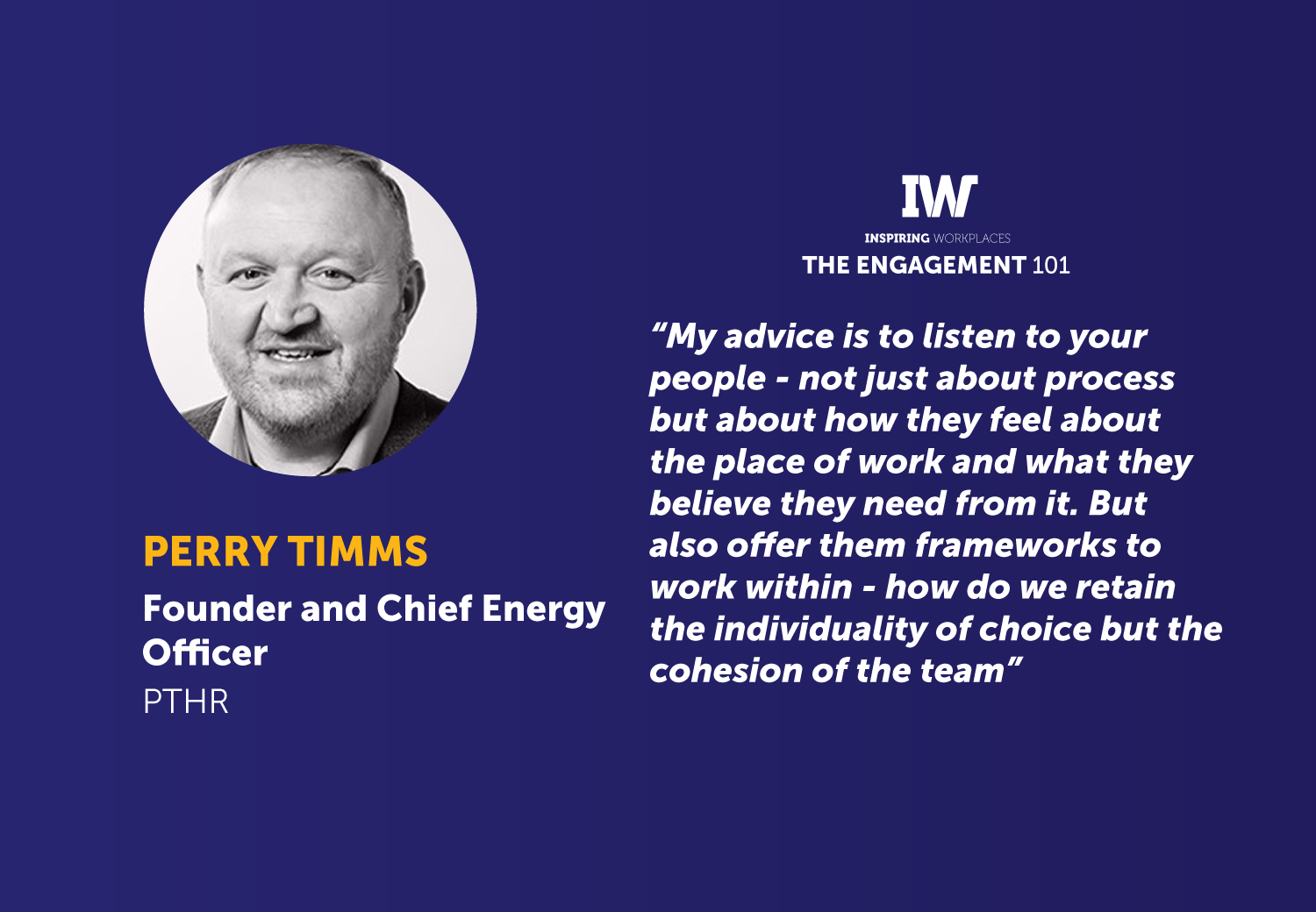
24th May 2021
How to return to the workplace (or not) – in a post covid world – Perry Timms

This snippet is part of our Ebook How to return to the workplace (or not) – in a post covid world. Advice and suggestions from our Top 101 influencers. You can download the full eBook with all the advice here.
Perry Timms, Founder and Chief Energy Officer, PTHR
Not blanket 2/3 in; all in etc. Constructed by teams. The unit of change for making the best hybrid working decisions or any scale of return is to get the team to work out (1) What are we here to do; and (2) How do we do it then (3) where do we need to do it best?
I’m 100% pro-remote. I’ve spent YEARS in offices. I have also spent years (over 20) in remote roles. I came to realise (on detachment from the one-office life) that it’s often a fake environment. People are thrown together, sure friendships and camaraderie are struck but mostly it’s fleeting, temporary and in my view over-romanticised and over-rated. TeamPTHR has been100% remote from the get-go and I’ve never felt a closer bond than I have with this team.
My advice is to listen to your people – not just about process but about how they feel about the place of work and what they believe they need from it. But also offer them frameworks to work within – how do we retain the individuality of choice but the cohesion of the team. Togetherness whilst apart. Remind them it’s about open and clear co-creation and most of all experimentation. Perpetual beta is the phrase I think is most opt. Never finished, always awaiting the next iteration.
When it comes to models or processes to follow I’m going to sound predictable but Agile is the way to be. Work done in sprints (so broken down into conceivable and manageable stages); work done “out loud” so our progress and stalling are in full view of our teammates and we can de-stigmatise getting stuck and show we can all throw in and help each other; so self-managed and self-determined without stifling supervision. We’ve possibly broken the industrialised, proximity-based, supervision by a manager model. It could well be time for what Isaac Getz and Brian Carney wrote about in 2009 L’enterprise Libertee – The Liberated Enterprise or as they titled it for the book: Freedom Inc.

